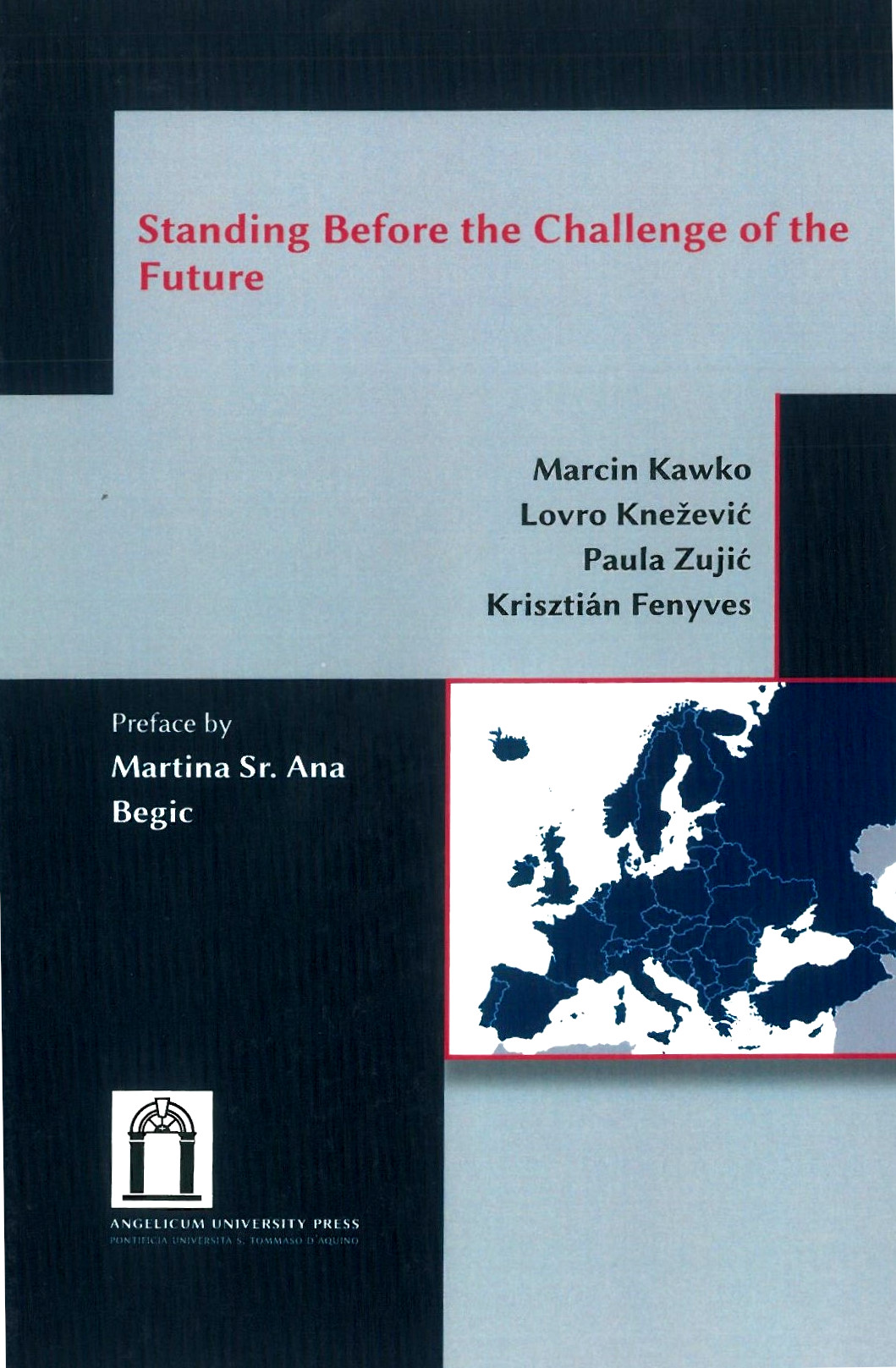 As Leonardo Becchetti points out in his contribution to this number of OIKONOMIA, it is ten years since the European Commission published its white paper on Corporate Social Responsibility. It is also eight years since the last Italian presidency of the European Council where the promotion of CSR was one of the five priorities of that semester. But most importantly, Italy and the Eurozone find themselves in the deepest economic crisis in living memory, threatening the Euro itself. All these reasons, as well as the substantial importance in itself of the question of the civic and social responsibilities of business, make timely a number of this journal on the situation of CSR in Italy.
As Leonardo Becchetti points out in his contribution to this number of OIKONOMIA, it is ten years since the European Commission published its white paper on Corporate Social Responsibility. It is also eight years since the last Italian presidency of the European Council where the promotion of CSR was one of the five priorities of that semester. But most importantly, Italy and the Eurozone find themselves in the deepest economic crisis in living memory, threatening the Euro itself. All these reasons, as well as the substantial importance in itself of the question of the civic and social responsibilities of business, make timely a number of this journal on the situation of CSR in Italy.
The Commission’s 2001 Green Paper gave us the definition of CSR that is widely used, at least in Europe: “a concept whereby companies integrate social and environmental concerns in their business operations and in their interaction with their stakeholders on a voluntary basis”1.
In the classic text for this number of OIKONOMIA, Adriano Olivetti also points out that “voluntary action, as Beveridge has defined it, should not be undervalued”2. Here, Olivetti wants to resist the position that social welfare is only the concern of the state, and to promote the idea that volunteering, with the intrinsic motivation to do something good that drives it, has a value over and above the content of the service rendered. Becchetti, however, has a different concern; he points out that as the CSR movement moves from its infancy into a more mature phase of application, the idea that it fundamentally consists in being “voluntary”, going beyond the law, becomes less and less helpful. As legal systems develop in the light of the CSR movement, it becomes more necessary to rely on a substantive definition, and he suggests the core content for one. CSR in this view requires dialogue with various stakeholders, not only shareholders, such that their views and interests are reflected across the various functions of the business, and above all in terms of strategy and corporate governance.
If we think of responsibility as “response-ability”, then a definition that starts with “responding” to all those who have a stake in the running of the enterprise, and encourages the business to develop its “ability to respond” to them makes sense. At the same time, this definition still seems to miss an important element. One way of thinking about this missing piece is to note that without a shared sense of what the stakeholders share in common, that is, the value that the business creates and the good that it is in itself, however good the firm is in responding to stakeholders, at the end of the day it can only aim to achieve the least controversial trade off between competing interests. If CSR is to continue to make progress, stakeholders are going to need to give more value to what they hold in common, alongside aiming for a fair share in the allocation of the value the business creates. A further, helpful step would be to recognize that what the firm is doing needs to be truly good, not just serving the interests of the stakeholders. Deciding what is “truly good” in a specific situation is no easy task (especially because it is not generally done in the boardroom, so little effort has been devoted to working it out), and certainly part of this would be to listen to stakeholders and to incorporate their point of view in decision-making. But this may only take us so far in circumstances where there are major power imbalances between stakeholder groups or where very new and innovative products are being developed. Michael Porter, one of the gurus of the business world, in a recent article with Mark Kramer seems to move in this direction when he argues that business strategists need to focus on “shared value”3.
Moving more specifically to the Italian situation, one of the striking phenomena in recent Italian history has been the emergence of the “CSR Manager”. Stefania Bertolini in her contribution gives some of the characteristics of this professional figure in Italy. Many elements are fluid, such as the person’s educational background, position in the company and job description. Some elements are also fairly standard, in particular, that CSR managers are normally promoted to this position from within the company rather than brought in from outside. This would seem to indicate that, given the fluidity of this role, firms tend to prefer someone who knows the company well in such a position over someone who might bring in specific competences into the firm. The results of the study that Bertolini summarises are largely confirmed by a much smaller study carried out in Spain at the IESE business school4. The uncertainty regarding the background of this figure, and the content of their jobs, may encourage us to look at the courses of formation that are available in this subject area, as another indication of the situation of CSR in Italy. In programmes both at the undergraduate and postgraduate levels, the most common module to be included is business ethics, followed in programmes at the undergraduate level by modules in CSR and strategy, social accounting and stakeholder engagement. At the masters’ level, six other subjects are treated in 80% of the programmes: communications, human resources, green management, principles of management, social accounting and European policy, indicating a more applied approach to the subject at this level.
Riccardo Balzano discusses various studies on the state of CSR in the small and medium businesses of Italy, representing over 99% of all Italian businesses and nearly 71% of GDP. As one would expect, the basic characteristics of CSR in a small business are its lack of formalisation, its association with the owner/manager as its main driver, and the well-attested fact that small businesses are generally well integrated into their local environments, even without the more sophisticated means of achieving this that larger companies need to use. Similarly, the main activities that small and medium enterprises carry out under the CSR umbrella are focused on employees and the local community. Much less developed are activities such as supply chain management or environmental reporting. While these results confirm many others, it is noteworthy that in this study, however, ethical values are not seen to be as important in the definition of CSR for small businesses as are several other values, such as security, innovativeness and quality (compare this to the universal inclusion of business ethics in the formation courses just mentioned). Balzano concludes with the observation that the SME’s of Italy still have to make the transition from a philanthropic view of CSR to one that sees creating social value as part of their strategic goals, influencing all aspects of the business.
values, such as security, innovativeness and quality (compare this to the universal inclusion of business ethics in the formation courses just mentioned). Balzano concludes with the observation that the SME’s of Italy still have to make the transition from a philanthropic view of CSR to one that sees creating social value as part of their strategic goals, influencing all aspects of the business.
The last major issue that is dealt with in this issue is the need for different CSR indicators for cooperative banks, as compared to the commercial banks. Since the cooperative sector is relatively large in Italy, and the Banche del Credito Cooperativo (BCC) have the widest network of branches across Italy and have been especially important during the financial crisis because of their “capacity to offer credit in an anti-cyclical way”, as the author notes, this issue is particularly.
NOTES
1 Commission of the European Communities, “Promoting a European Framework for Corporate Social Responsibility”, Green Paper, available at: http://eur-lex.europa.eu/LexUriServ/site/en/com/2001/com2001_0366en01.pdf (last accessed 19.09.11), Brussels, 18.7.2001 COM(2001) 366 final.
2 Author’s translation of the Italian original, as given in the “Classic Text” in this month’s OIKONOMIA: “l’azione volontaria, come l’ha definita Beveridge, non può essere sottovalutata”.
3 Michael Porter and Mark Kramer, “Creating Shared Value”, Harvard Business Review, Jan – Feb 2011, available at: http://hbr.org/2011/01/the-big-idea-creating-shared-value (last accessed 26.09.11).
4 Argandona, Antonio, Joan Fontrodona, José Joan and Pilar Garcia, “CSR Managers in Front of the Mirror”, IESE Insight, available at the page: http://www.ieseinsight.com/doc.aspx?id=819&ar=17 (last accessed 19.09.11).
 IT
IT  EN
EN 
















